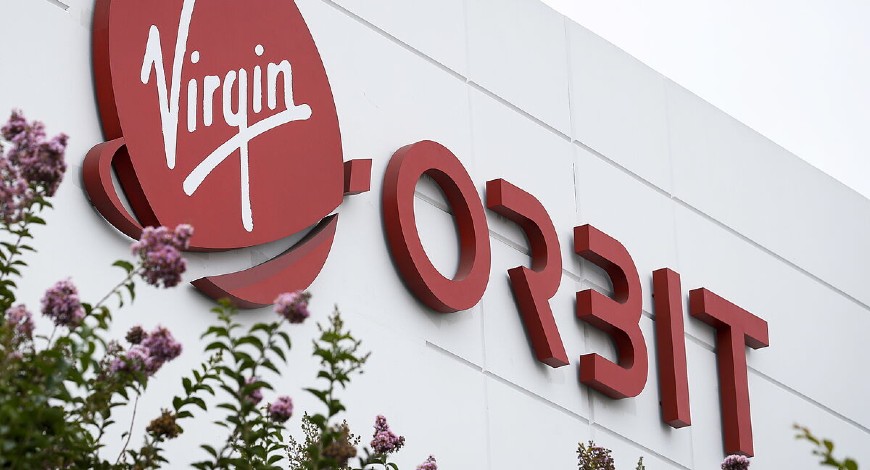Company News
Virgin Orbit shuts down after bankruptcy sales

Bankrupt rocket company Virgin Orbit is shutting down after selling its facility leases and equipment to a trio of aerospace companies in an auction, the company confirmed on Tuesday.
“As Virgin Orbit embarks on this path, the management and employees would like to extend their heartfelt gratitude to all stakeholders,” the company said in a statement.
“Virgin Orbit’s legacy in the space industry will forever be remembered. Its groundbreaking technologies, relentless pursuit of excellence, and unwavering commitment to advancing the frontiers of air launch have left an indelible mark on the industry,” the company added.
Spun out of Virgin Galactic in 2017 by founder Sir Richard Branson, Virgin Orbit reached rarefied air by flying multiple missions. But difficulty raising funds, and slow execution, brought the once multibillion-dollar company to bankruptcy and ultimately shut down.
Monday’s auction bids amount to about $36 million in total. Virgin Orbit’s six or so rockets that were in various stages of manufacturing assembly, and its intellectual property, have yet to be sold, a Virgin Orbit spokesperson confirmed.
Rocket Lab successfully bid $16.1 million for the company’s headquarters in Long Beach, California, which is about 140,000 square feet, the spokesperson said. Although founded in New Zealand, Rocket Lab was already a neighbor of Virgin Orbit, with a headquarters and facilities in the Long Beach area. Additionally, Rocket Lab’s purchase includes assets such as 3D-printers and a specialty tank welding machine.
In a press release, Rocket Lab said the Virgin Orbit assets will improve its production, manufacturing, and test capabilities, especially in developing its larger Neutron rocket.
“With Neutron’s design and development well-advanced, this transaction represents a capital expenditure savings opportunity to augment our production capability to bring Neutron to the launch pad quickly to serve our customers and their future success. Securing the lease to the [Virgin Orbit facility] adds to our existing presence in Long Beach and provides co-located engineering, manufacturing, and test capabilities for our Neutron team,” Rocket Lab founder and CEO Peter Beck said in a statement.
Stratolaunch was awarded its $17 million “stalking horse” bid for Virgin Orbit’s 747 jet. A Stratolaunch spokesperson, in a statement to CNBC, said the company “continually evaluates ways to increase our capacity to meet the imperative for testing hypersonic technologies via leap-ahead flight demonstrations.”
“We will share more news about the sale as it becomes available,” Stratolaunch noted.
Previously in the bankruptcy process, Virgin Orbit agreed to the terms of Stratolaunch’s bid, which was to purchase the 747 jet “Cosmic Girl” and other aircraft assets. Stratolaunch has been developing its own airborne system, the world’s largest airplane called “Roc,” as a platform for hypersonic flight testing.
Launcher, a subsidiary of Vast Space, is purchasing the company’s facility in Mojave, California — as well as some machinery, equipment and inventory — for $2.7 million. Virgin Orbit’s Mojave leases include infrastructure such as rocket engine test stands and an aircraft hangar.
A liquidation company, Inliper, is purchasing the company’s office equipment for $650,000.
Launcher did not respond to CNBC’s request for comment.
The bankruptcy court is set to approve the sales in a hearing on Wednesday at 2 p.m. ET.
Virgin Orbit was spun off from Branson’s space tourism company after a team saw potential in using an aircraft as a platform to launch satellites. While “air launching” satellites was not a novel idea to Virgin Orbit, the company aimed to do it more quickly and affordably than in previous efforts.
It became one of a few U.S. rocket companies to successfully reach orbit with a privately developed launch vehicle. It launched six missions since 2020 — with four successes and two failures — through an ambitious and technically difficult process known as “air launch,” with a system that uses a modified 747 jet to drop a rocket mid-flight and send small satellites into space.
The company flew most of its missions out of the Mojave Air and Space Port in California, except for one that took off from the United Kingdom. That January launch from the U.K. was also its final one.
In March, CNBC reported the company would pause operations and furlough nearly its entire workforce as it became increasingly desperate to find a funding lifeline. But those financial discussions failed, with the company laying off most of its workforce before filing for Chapter 11 bankruptcy protection on April 4.
Former Virgin Orbit COO Tony Gingiss, in a company-wide email sent in April, issued an apology to company employees, CNBC reported. Gingiss applauded the Virgin Orbit workforce for being “part of something audacious, challenging, and fulfilling,” but said that employees “simply did not have the leadership or opportunity to demonstrate to the world what you can fully do and how this product could be an enduring force in the market.”
“You deserved better than this!” Gingiss wrote.
While Virgin Orbit aimed to find a wholesale buyer through the bankruptcy process to keep the company’s assets and intellectual property intact, the company was unable to do so, leading to Monday’s auction. CNBC




